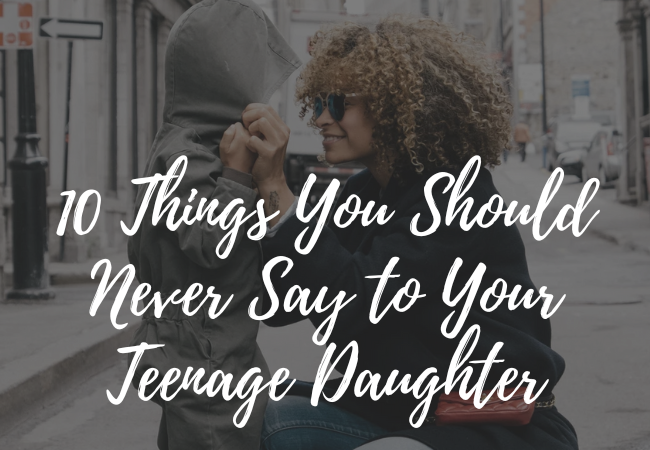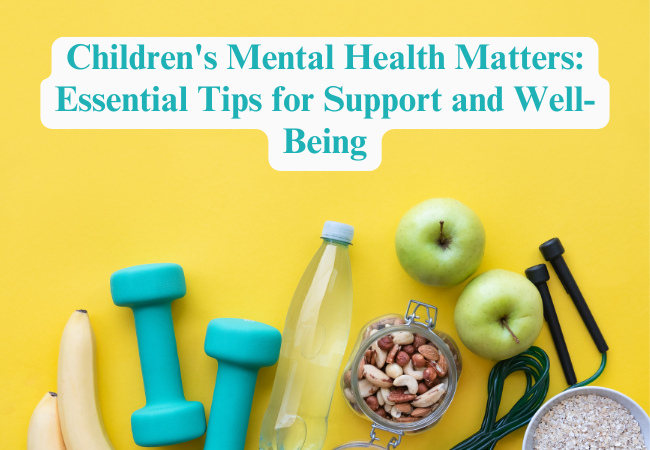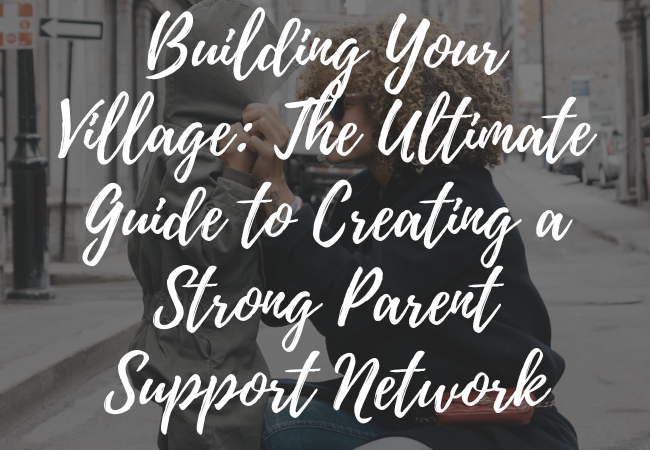10 Things You Should Never Say to Your Teenage Daughter
Learn the 10 things you should never say to your teenage daughter to maintain a healthy relationship. Discover tips for positive communication and building trust during her teen years.
Navigating the teenage years can be challenging for both parents and daughters. As your little girl transitions into a young woman, communication becomes more crucial than ever. However, certain phrases can damage your relationship and your daughter’s self-esteem. This guide will help you identify 10 things you should never say to your teenage daughter, along with alternative approaches to foster positive communication and build trust.

1. “You’re being too emotional.”
Why it’s harmful: This dismisses her feelings and can make her feel invalidated.
Instead, try: “I can see you’re feeling upset. Would you like to talk about it?”
2. “Why can’t you be more like your brother/sister/friend?”
Why it’s harmful: Comparisons can damage self-esteem and create resentment.
Instead, try: “I appreciate your unique qualities. What goals do you have for yourself?”
3. “You’re too young to understand.”
Why it’s harmful: This undermines her growing maturity and can discourage her from sharing.
Instead, try: “I’d love to hear your perspective on this.”
4. “Because I said so.”
Why it’s harmful: It doesn’t explain your reasoning and can feel dictatorial.
Instead, try: “Let me explain my reasons for this decision.”
5. “You’ll never get a boyfriend/girlfriend if you…”
Why it’s harmful: This ties her worth to romantic relationships and can create insecurity.
Instead, try: “Your worth isn’t defined by relationships. Focus on being your best self.”
6. “You’re getting fat.”
Why it’s harmful: Body-shaming can lead to long-term self-image issues and eating disorders.
Instead, try: “Let’s focus on healthy eating and staying active as a family.”
7. “You’re just like your father/mother.” (said negatively)
Why it’s harmful: This can create identity confusion and damage family relationships.
Instead, try: “You have your own unique personality, and that’s wonderful.”
8. “I wish you were never born.”
Why it’s harmful: This is deeply hurtful and can cause long-lasting emotional damage.
Instead, try: Never say this. If you’re frustrated, take a break before speaking.
9. “You’re a disappointment.”
Why it’s harmful: This can crush her self-esteem and motivation.
Instead, try: “I believe in you. How can I support you in achieving your goals?”
10. “You’re so lazy/stupid/useless.”
Why it’s harmful: Name-calling can lead to self-fulfilling prophecies and damage self-worth.
Instead, try: “I’ve noticed you’re struggling with [specific issue]. How can we work on this together?”
Tips for Positive Communication
- Practice active listening
- Validate her feelings
- Use “I” statements to express your concerns
- Avoid sarcasm or condescending tones
- Respect her privacy and boundaries
- Encourage open dialogue without judgment
- Apologize when you make mistakes
Building Trust During the Teen Years
- Be consistent in your words and actions
- Show interest in her life without being intrusive
- Keep her confidences (unless safety is at risk)
- Involve her in family decisions when appropriate
- Respect her growing independence
- Offer guidance without being controlling
- Be available when she needs to talk
Conclusion
Effective communication with your teenage daughter requires patience, empathy, and mindfulness. By avoiding these harmful phrases and focusing on positive, supportive language, you can strengthen your relationship and help her navigate the challenges of adolescence. Remember, your words have power – use them to build up, not tear down.
Every teenager is unique, and what works for one may not work for another. Stay flexible in your approach and always prioritize maintaining a loving, respectful relationship. By creating a safe space for open communication, you’ll foster trust and help your daughter develop into a confident, well-adjusted young woman.
For more resources on parenting teenagers, consider these helpful links:
- American Psychological Association: Parenting Teens
- Child Mind Institute: Parenting Teenagers
- CDC: Positive Parenting Tips for Teenagers
Remember, the goal is not to be a perfect parent, but to be a present, supportive one. Keep the lines of communication open, and don’t hesitate to seek professional help if you’re struggling with parent-teen relationships.
For more information and guide, visit usaparentingtips.com






